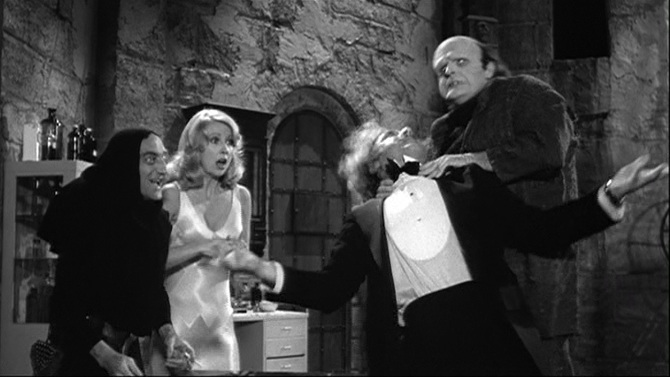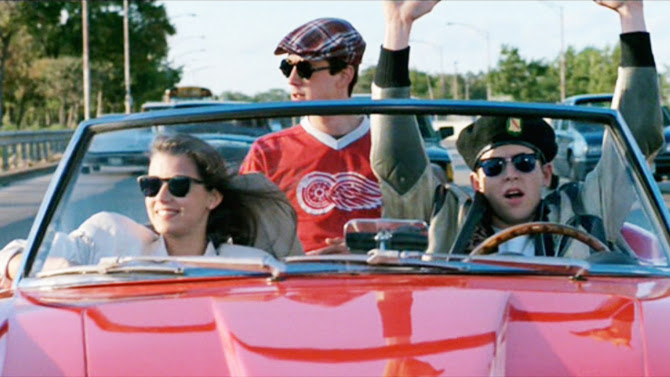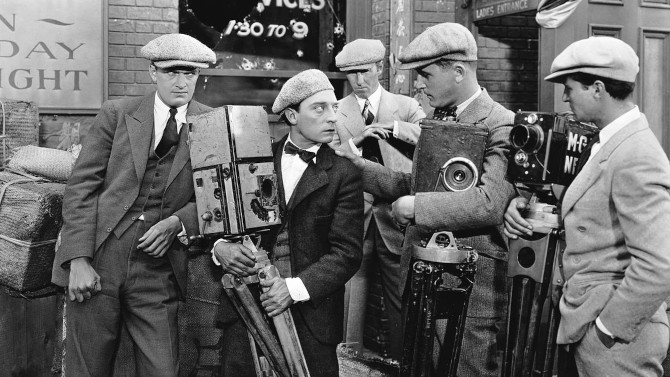
Plights, Camera, Action
Often deemed to be the last classic film made by the great Buster Keaton, The Cameraman (1928) was the final time the silent legend would have anything close to full creative control over one of his own features... as he folded his independent studio to sign with Metro-Goldwyn-Mayer (MGM) – who promptly made him their third highest paid star. Though his future would soon turn very bleak, this first film with the new studio was his own idea.
-
Star Pick with Mike MacDonald
 Young Frankenstein Never Grows OldYoung FrankensteinOctober 4, 2016
Young Frankenstein Never Grows OldYoung FrankensteinOctober 4, 2016I recently sat down with famed comedian Mike MacDonald, who has had much success touring North America over the past several decades. The popular comic has done it all, including performances of his stand up on Late Night with David Letterman, The Arsenio Hall Show, having comedy specials on Showtime and the CBC, as well as being a staple at the ‘Just For Laughs’ comedy festival in Montreal. He has even starred in a few movies. After his sidesplitting performance at The Port Theatre in Cornwall, Ontario (on August 19th, 2016), the funnyman was kind enough to sit down with me, telling me about some of his favourite films. He immediately referenced the parody as being his preferred type of motion picture. He eloquently and succinctly highlighted a key aspect in creating a successful parody: "when you want to piss on something, it is good for a two or three minute sketch. But to parody something for ninety minutes, you have to love the subject".
-
Star Pick with Matt Sobb
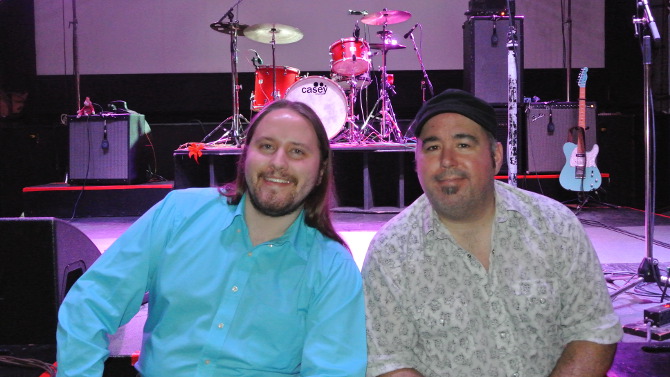 Don’t Skip This Hughes’ ClassicFerris Bueller's Day OffSeptember 27, 2016
Don’t Skip This Hughes’ ClassicFerris Bueller's Day OffSeptember 27, 2016It is hard to fathom that Ferris Bueller’s Day Off is thirty years old. Written and directed by John Hughes, it is one of the seminal comedies of the 1980s – having influenced so many future films that look at the lives of bored yet rambunctious teenagers. Not too long ago, I chatted with MonkeyJunk drummer Matt Sobb. An integral part of the three piece Juno Award winning swamp rock/blues band, the percussionist narrowed his favourite films down to two – strangely enough, both were released in 1986: Stand by Me and Ferris Bueller’s Day Off (which will be discussed here today). Providing me with two very well rounded and in depth answers, check out his response down below by clicking on the video interview. The band has been busy of late, having spent much time on tour throughout Europe and the United States – they are now making their way through Canada just prior to the release of their new album, Time to Roll. Make sure to check them out if you get a chance.
-
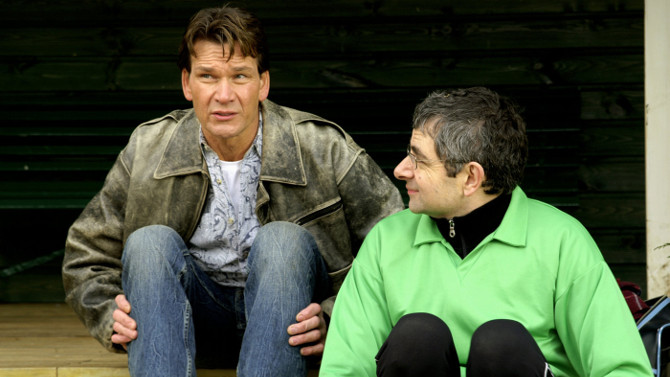
Mum’s the Word
Keeping MumSeptember 9, 2016In September we will mark the seventh anniversary of the death of Patrick Swayze. Becoming a powerhouse star of the 1980's and 1990's with classics such as Dirty Dancing, Ghost, Road House, Point Break, among others, the man left an indelible impact on the film industry. So, as a tribute here today, I am going to write about one of his last movie roles that can be found in the small, rarely seen 2005 British comedy Keeping Mum. Directed by Niall Johnson, the story follows a married reverend, Walter Goodfellow, played masterfully by Rowan Atkinson (Mr. Bean), his wife Gloria, Kristin Scott Thomas (The English Patient), and their two children, as their lives become more and more impacted by their new housekeeper Grace, the endearing Dame Maggie Smith (Professor McGonagall from the Harry Potter franchise).
-
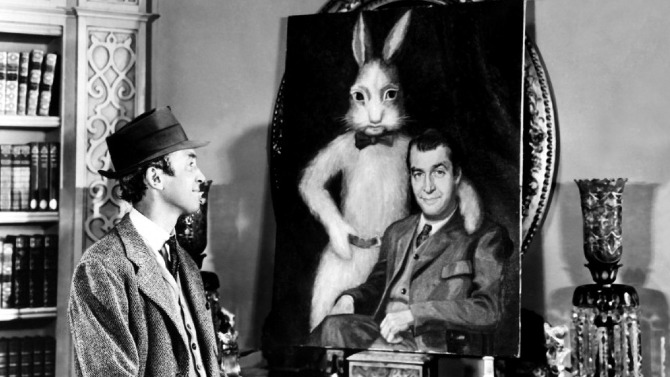
A Rabbit and a Gent Walk Into a Bar…
HarveySeptember 4, 2016If a stage play is to be successful, it needs to rely on the strength of two very important aspects – its actors and sharp dialogue. The one thing that I have come to notice when watching an adaptation of a play is that the dialogue that transitions over to the big screen is almost always beautifully written, unbelievably witty and surprisingly eloquent. There is perhaps no better example of this than the 1950 classic Harvey. Mary Chase adapts her own Pulitzer Prize winning play (with some help from Oscar Brodley), bringing with her Jimmy Stewart and Josephine Hull, two actors who had already tackled the material on the stage. Stewart plays Elwood P. Dowd, a kindly and charming gentleman who comes from a well-to-do family. He has a lovely demeanor, but is thought to drink too much (he does spend most of his days frequenting bars) . . . and also just happens to be friends with an invisible, six foot three and a half inch tall rabbit named Harvey.
-
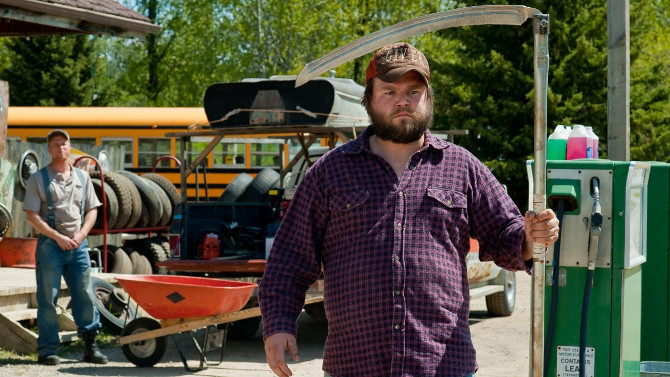
A Bloody Funny Misunderstanding
Tucker and Dale vs EvilAugust 28, 2016Words are funny (and I don’t necessarily mean ha ha funny). Let me explain by way of an example: if I were to say, select the highest number between 5 and 8 – half of you would likely say 8, while some others would choose 7 (or 7.9), depending on how you perceive the word between. I use the word perceive, because perception is equally as fickle. Three people witnessing an automobile accident can sometimes see three very different things. Words and perception are used in clever fashion to exhume bloody humour in the 2010 comedy/horror flick Tucker and Dale vs. Evil. Co-writer/director Eli Craig (as well as second co-scribe Morgan Jurgenson) flip our perception of what ‘should be’ from the very beginning. Tucker (Alan Tudyk) and Dale (Tyler Labine) are two, for lack of a better word, hillbillies. . . but not those of horror past who enjoy slaughtering local travellers.
-
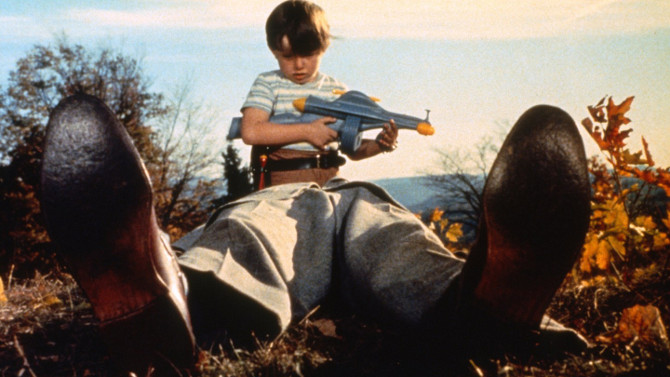
You’ll Dig Harry
The Trouble with HarryAugust 12, 2016I’ll let you in on a little secret. . . The Trouble With Harry is, well, he’s dead. Alfred Hitchcock directs this cheeky black comedy about a number of villagers who discover the body of a deceased man out in the woods in picturesque New England. Though it was an American film, Hitchcock adapts a very British story (after all, it is usually Europeans who can find comedy in death) for the screen. A project he desperately wanted to get made, it finally came to fruition in 1955. The first to stumble upon the body is a little scamp of a child named Arnie Rogers (Jerry Mathers of Leave It to Beaver fame).

